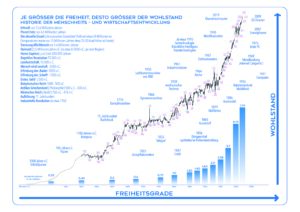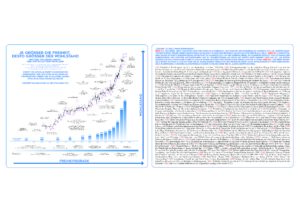“Men are ruled by ideas, sentiments, and customs – matters which are of the essence of ourselves.
…. The teachings of pure reason are very often contrary to those of practical reason. There are scarcely any data, even physical, to which this distinction is not applicable. From the point of view of absolute truth a cube or a circle are invariable geometrical figures, rigorously defined by certain formulas. From the point of view of the impression they make on our eye these geometrical figures may assume very varied shapes. By perspective the cube may be transformed into a pyramid or a square, the circle into an ellipse or a straight line. Moreover, the consideration of these fictitious shapes is far more important than that of the real shapes, for it is they and they alone that we see and that can be reproduced by photography or in pictures. In certain cases there is more truth in the unreal than in the real. To present objects with their exact geometrical forms would be to distort nature and render it unrecognisable…..
The complexity of social facts is such,
that it is impossible to grasp them as a whole and to foresee the effects of their reciprocal influence.
It seems, too, that behind the visible facts are hidden at times thousands of invisible causes. Visible social phenomena appear to be the result of an immense, unconscious working, that as a rule is beyond the reach of our analysis. Perceptible phenomena may be compared to the waves, which are the expression on the surface of the ocean of deep-lying disturbances of which we know nothing. So far as the majority of their acts are considered, crowds display a singularly inferior mentality; yet there are other acts in which they appear to be guided by those mysterious forces which the ancients denominated destiny, nature, or providence, which we call the voices of the dead, and whose power it is impossible to overlook, although we ignore their essence. It would seem, at times, as if there were latent forces in the inner being of nations which serve to guide them. What, for instance, can be more complicated, more logical, more marvellous than a language? Yet whence can this admirably organised production have arisen, except it be the outcome of the unconscious genius of crowds? The most learned academics, the most esteemed grammarians can do no more than note down the laws that govern languages; they would be utterly incapable of creating them. Even with respect to the ideas of great men are we certain that they are exclusively the offspring of their brains? No doubt such ideas are always created by solitary minds, but is it not the genius of crowds that has furnished the thousands of grains of dust forming the soil in which they have sprung up? …… Crowds, doubtless, are always unconscious, but this very unconsciousness is perhaps one of the secrets of their strength. In the natural world beings exclusively governed by instinct accomplish acts whose marvellous complexity astounds us. Reason is an attribute of humanity of too recent date and still too imperfect to reveal to us the laws of the unconscious, and still more to take its place. The part played by the unconscious in all our acts is immense, and that played by reason very small. The unconscious acts like a force still unknown.”
Gustave Le Bon (“The Crowd: A Study of the Popular Mind”, 1895)



